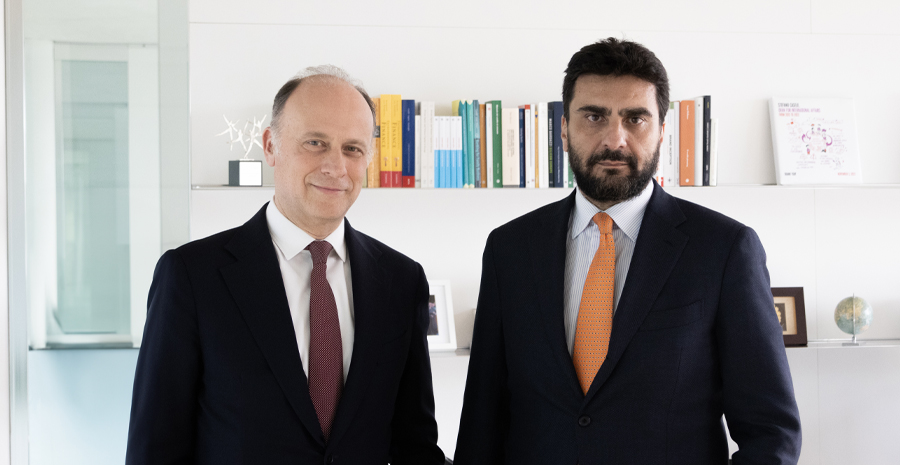
- Start date
- Duration
- Format
- Language
- 2 Dic 2025
- 4,5 days
- Class
- Italian
In a fast-changing labor market that constantly presents new challenges, human capital remains a key differentiator for business competitiveness.
This was the central theme of the SDA Bocconi Leadership, HR & Organization Thematic Area Reunion, titled "The Central Role of Human Capital: How to Make a Difference in Competitive Markets," which brought together alumni, managers, professionals, and SDA Bocconi Faculty for an afternoon of dialogue, learning, and exchange.
The event opened with a welcome address by Professor Ferdinando Pennarola, Director of the Thematic Area, who emphasized that the centrality of people must go beyond being a stated value — it must be translated into concrete actions that continuously generate value for both individuals and organizations. For this reason, the event was built around a direct exchange of successful corporate experiences, with the goal of inspiring systematic improvement within organizational contexts.
In the first panel, moderated by Ferdinando Pennarola, Donatella de Vita (Global Head of Welfare, Engagement and DE&I Programmes, Pirelli), Assunta Galasso (Head of Education, DE&I & People Development, Leonardo), and Silvia Rappini (CEO, ENI Corporate University) explored how employee needs and expectations — especially among younger generations — are rapidly evolving. Today, well-being, meaningful work, engagement, and real investment in people’s development are crucial for retaining talent.
From internal listening strategies to upskilling and reskilling programs, from community-oriented welfare initiatives to personalized growth paths, the speakers shared how forward-thinking companies are evolving their HR practices to stay competitive in an increasingly demanding market. Above all, a strong corporate purpose continues to emerge as a key driver of employee connection and motivation.
The second part of the event, introduced by Emanuela Prandelli, Associate Dean for Open Programs, focused on the role of training in developing skills — particularly behavioral skills.
Alongside Galasso and Rappini, Amelia Parente (CHRO, Diasorin) shared her perspective, emphasizing that today, behavioral skills are what truly make the difference. Competencies such as collaboration, engaging leadership, and relational intelligence are now recognized as strategic assets that should be reclassified beyond the traditional “soft skills” label.
The discussion also underlined the value of immersive learning as a powerful tool to foster real engagement, build meaningful networks, and generate shared knowledge. Growth paths built on listening and recognizing individual strengths are essential to nurturing a continuous desire to learn — a critical lever for retention.
The Reunion was also a valuable opportunity to reconnect with the community of alumni from Leadership, HR & Organization courses. The exchange with real-world business experiences sparked new reflections and provided practical tools for addressing the challenges of organizational transformation, lifelong learning, and evolving leadership models.
SDA Bocconi School of Management



The program equips you with tools to identify your team's strengths and challenges, adapting your leadership style to enhance team effectiveness.

